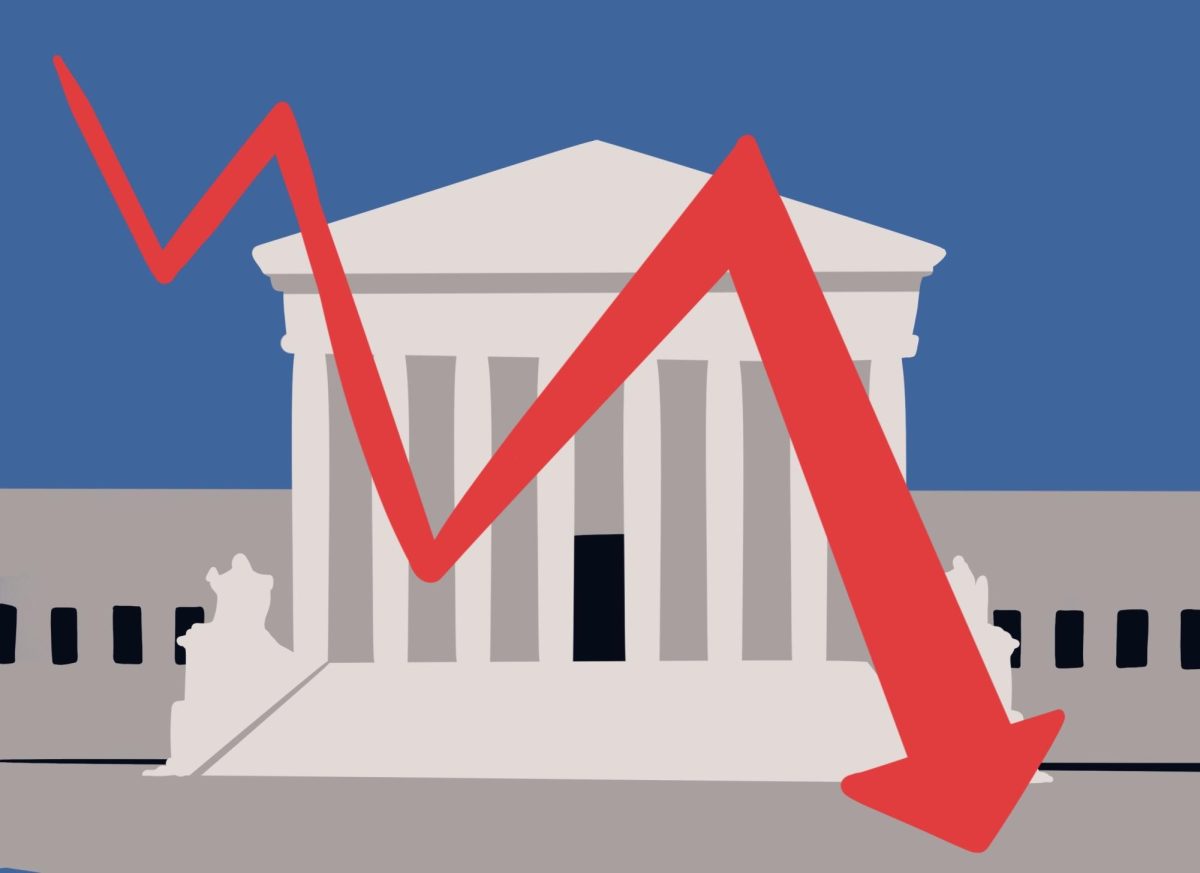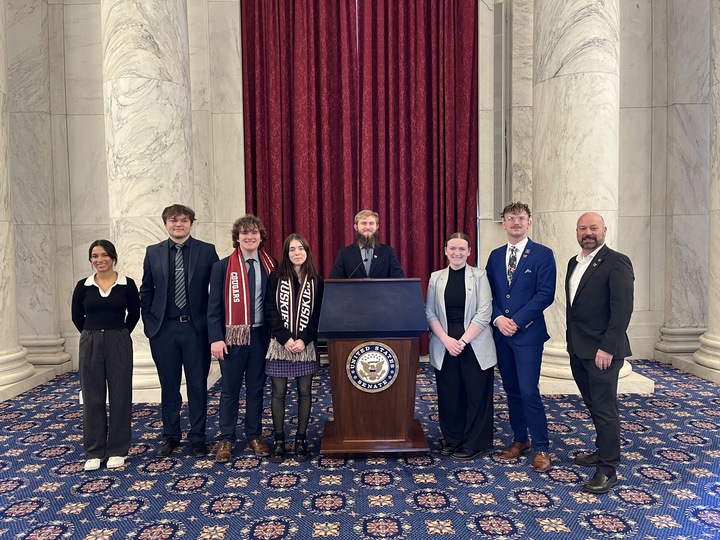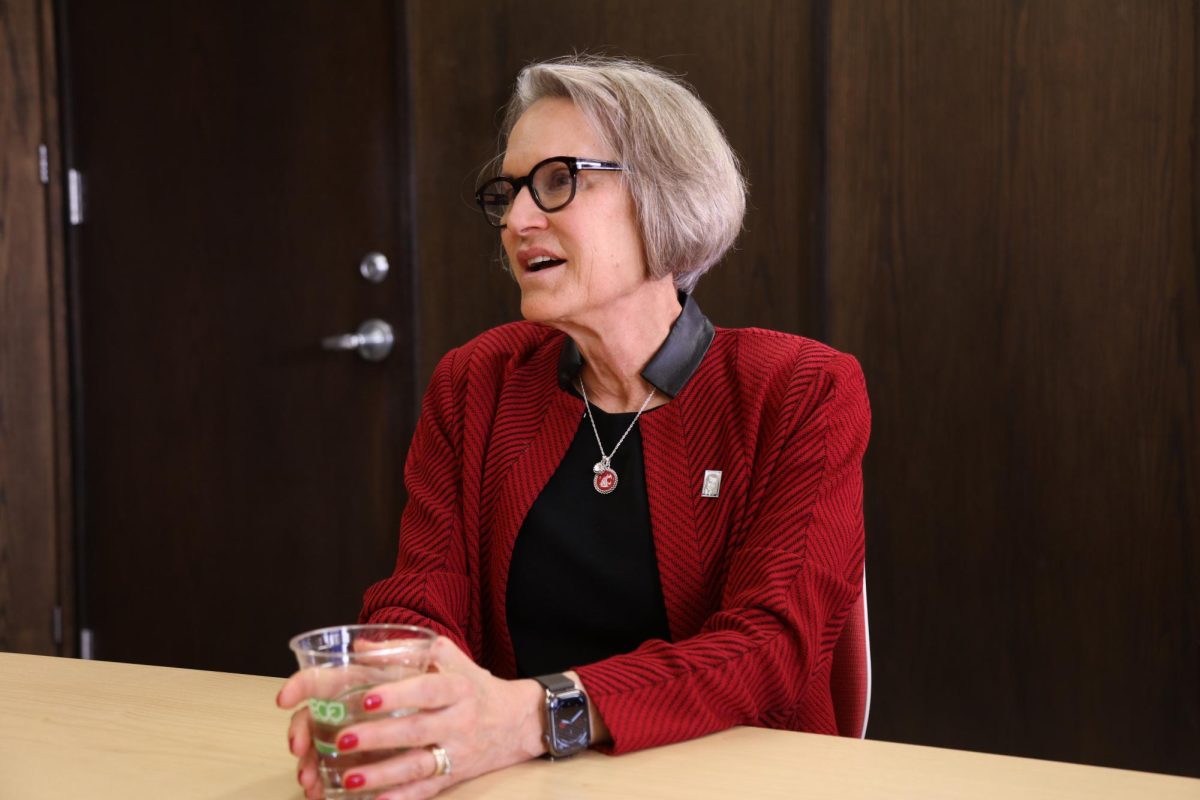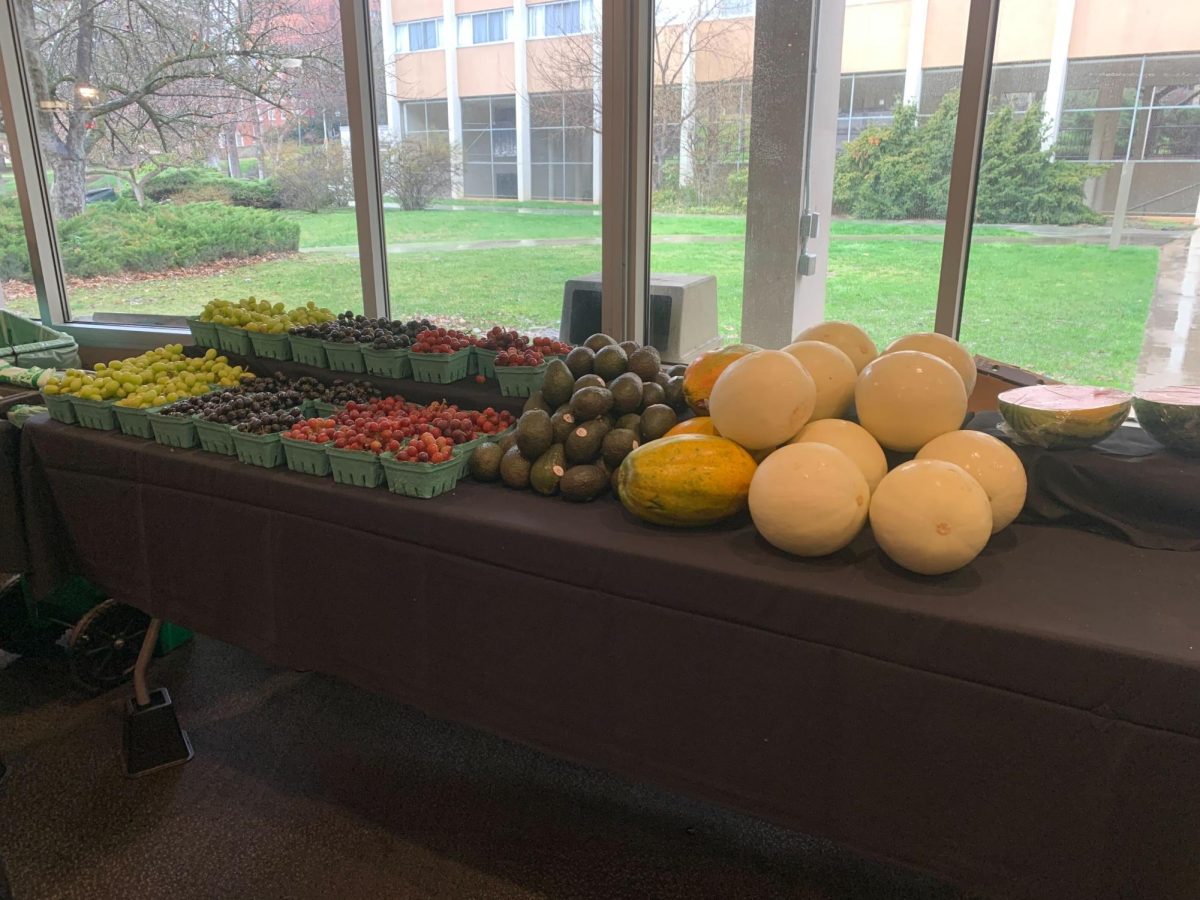A WSU political science professor recently got featured in a 538 ABC article focusing on the increasingly dim approval ratings and public opinion of the Supreme Court
Michael Salamone, associate professor of political science, has talked to 538 and other national news outlets such as AP prior to his appearance in the recent article, he said. 538 focuses on covering elections, politics and American society, however, was originally an independent website before being published on the ABC News Website.
The Supreme Court has an average approval rating of -16%, with 38% of Americans approving of the job the Supreme Court is doing while 54% of Americans do not, according to the article. Further, public opinion of the court is highly polarized with a gap of 75 approval points between the Democratic and Republican Parties, according to the article.
Currently, the Supreme Court has six conservative justices and three liberal justices. A large part of the disapproval is because the partisan battles over the court have become increasingly intense, especially in the wake of Ruth Bader Ginsburg’s death and the rush to have Donald Trump nominate a replacement justice, Salamone said.
“We’re in a period of really intense partisan polarization right now,” Salamone said. “To the point where even things like democratic norms, regardless of what party you are, you kind of had a common shared belief in these things, even those are being called to question right now.”
Any form of government, not just the Supreme Court, would suffer from this level of divide, Salmone said.
In order to improve public opinion, ethical reforms or becoming more forthright about the court and its inner workings to instill more confidence in the public regarding the Supreme Court is a possibility, Michael Ritter, assistant professor of political science at WSU, said.
Disapproval ratings and negative public perception of the Supreme Court can potentially contribute to people feeling politically alienated and not accurately represented by the judicial decision-making, Ritter said. Less confidence in the court system relates to lower legitimacy of public opinion regarding the courts’ decisions, he said.
“If you feel confident that you’ll be listened to, you will vote, but people tend to develop weaker senses of political efficiency if they feel like the political system is not addressing their needs or interests where it’s representative of their perspectives,” Ritter said.
The Supreme Court normally has diffuse support, or institutional loyalty where support is fairly constant and individual decisions do not move the loyalties around regarding perception of the court, Salamone said. However, this has started to change.
“You’re seeing some politicians talking about things like term limits, or expanding the size of the court,” Salamone said. “You don’t see these reforms getting proposed in any serious way unless the legitimacy is already taking a hit.”
The disapproval of the Supreme Court is not normal. Typically, they have a general approval rate of what they do, however, the court has not looked like this for a long time, Salamone said. After the Dobbs v. Jackson Women’s Health Organization decision where the constitutional right to abortion was taken away, the Democratic Party opinion of the court decreased significantly and has not bounced back.
Although the Supreme Court and the public work independently from each other, as the public cannot vote for a Supreme Court Justice, voting for the president and senators who appoint people to the Supreme Court is a way for people to input their voices and public opinion indirectly toward the court, Ritter said.
“The Supreme Court by itself cannot determine its own decisions, it takes the other branches of government, it takes state governments and it takes people in general to agree with the decision and agree that it’s important to comply with them,” Ritter said.
Despite the independence from the public, the Supreme Court is still mindful of public opinion because research indicates they are mindful of how likely people will abide by their decisions and how likely they are to receive support, Ritter said.










